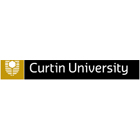Bachelor of Science (Laboratory Medicine)
Bachelor of Science (Laboratory Medicine)
Laboratory medicine teaches you about pathology (the origin, nature and course of disease) and the diagnosis of disease. Your first year is interprofessional and taken with other health sciences students. Your second year develops your knowledge of the cellular and tissue aspects of pathology, and the individual disciplines of laboratory…
Categories
COURSE DESCRIPTION
Laboratory medicine teaches you about pathology (the origin, nature and course of disease) and the diagnosis of disease.
Your first year is interprofessional and taken with other health sciences students. Your second year develops your knowledge of the cellular and tissue aspects of pathology, and the individual disciplines of laboratory medicine.
In your third and fourth years, you’ll gain extensive field experience and focus on three of the following major disciplines: clinical biochemistry, diagnostic cytology, haematology and transfusion science, histopathology, immunology and medical microbiology.
You’ll learn in Curtin’s new PC2 laboratory facility, where you can analyse clinical samples, process pathogenic microorganisms in biosafety cabinets and report results in the same way as a real pathology laboratory.
Professional recognition
Professionally recognised by the Australian Institute of Medical Scientists.
Career information
Careers
- Medical scientist.
Industries
Community health
Education
Health technology
Manufacturing
Private and public hospitals
Research centres and laboratories.
What you’ll learn
- Apply general and discipline specified knowledge to the performance of laboratory medicine
- The application of knowledge critically and ethically in the laboratory medicine setting
- Obtain and critically appraise information from a range of resources applicable to the practice of medical science
- Communicate effectively specialised knowledge relevant to laboratory medicine
- The selection and effective use of appropriate technologies to generate valid data
- Recognition of the need for on-going learning in the Medical Science profession
- An awareness of global differences in disease patterns and diagnostic medicine
- Recognition of cultural difference and its impact on Medical Science
- Recognition of the necessity for probity and ethical behaviour and a professional approach to medical science.
REQUIREMENTS
Students from different countries should have qualifications equivalent to Australian Year 12 and a scaled mark of at least 50 in English, Literature, or English as an Additional Language or Dialect.
IELTS (International English Language Testing System) – Listening, Reading, Writing, and Speaking – 6.0; Overall band score 6.5; TOEFL Score: 79 (overall); Reading 13; Listening 13; Speaking 18; Writing 21; Pearson Test of English – Listening, Reading, Writing, and Speaking – 50; Overall band score 58; TOEFL (Test of English as a Foreign Language) and PBT (Paper Based Test) – 570 and 4.5 in TWE; C1 Advanced Formerly known as Cambridge English: Advanced (CAE) 176 with 169 in Reading, Writing, Listening and Speaking. C2 Proficiency Formerly known as Cambridge English: Proficiency (CPE) 190 with 176 in Reading, Writing, Listening and Speaking.
EDUCATIONAL INSTITUTION
Curtin University is Western Australia’s largest and most culturally diverse university with Australia’s third largest international student population. Around 60,000 students from more than 130 countries study a Curtin degree, at locations including Perth, Margaret River, Kalgoorlie, Sydney, Malaysia and Singapore. Our cultural diversity adds a rich and valuable dimension to the campus atmosphere, preparing all graduates to live and work effectively in an increasingly global environment. We offer a range of industry-aligned undergraduate and postgraduate courses in business, humanities, health, engineering and related sciences. We also have a long-standing focus on Aboriginal and Torres Strait Islander education and culture, supported by our Centre for Aboriginal Studies.Curtin is widely recognised for its practical research that is focused on solving timely, real-world problems. In recent years our research activity has grown significantly, driving our rapid rise up the international university rankings.As a university that never settles, we will continue to develop existing partnerships and establish new ones in areas relevant to our research and teaching.




